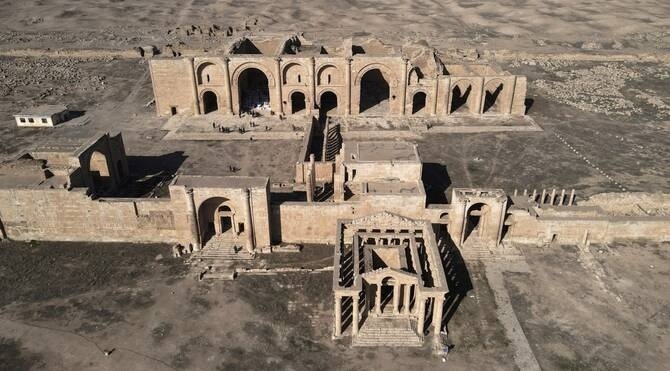Iraq Reclaims Its Ancient Heritage to Become a Cultural Tourism Destination
London — Iraq, the cradle of civilization and birthplace of agriculture, writing, and some of the world’s earliest great cities, is steadily reemerging as a cultural tourism destination.
After years of conflict and instability, the country is now attracting visitors eager to explore its rich archaeological and historical treasures.
Once a magnet for Western archaeologists and travelers on the Orient Express, Iraq is reviving its heritage sites, including Babylon, Ur, Nimrud, Nineveh, Hatra, and the spiral Malwiya minaret of Samarra.
These sites offer visitors a chance to witness the origins of human civilization and experience the country’s remarkable cultural legacy.
Iraq’s economy has long been dependent on oil, ranking second in crude oil production in 2023. However, like other nations seeking to diversify, Iraq is now investing in its cultural assets to create sustainable sources of income through tourism.
Heritage tourism not only supports the economy but also promotes international understanding and cooperation, connecting people through shared history.
President Abdul Latif Rashid emphasized the broader value of tourism at a ceremony marking Baghdad as the Arab Tourism Capital for 2025, noting that it fosters “understanding and cooperation between peoples and cultures.”
The impact is already visible: Iraq’s tourism revenue increased by 25 percent in 2024, reaching $5.7 billion, driven partly by religious tourism and growing interest in cultural heritage sites.
Organizations like the World Monuments Fund (WMF) are collaborating with the Iraqi State Board of Antiquities and Heritage to restore and safeguard key sites.
WMF CEO Benedicte de Montlaur highlighted Iraq’s extraordinary cultural wealth, noting that “some of humanity’s earliest cities, writing systems, and laws were born here.”
The inscription of Babylon on UNESCO’s World Heritage List in 2019 marked a milestone, signaling renewed global interest in Iraq’s heritage.
Local and international efforts are laying the groundwork for responsible, community-based tourism. This includes stabilizing historic structures, supporting local craftspeople, and training communities to care for their heritage.
“Only once a site is safe and well cared for can it truly be shared with the public in a sustainable way,” de Montlaur explained.
Despite past challenges, Iraq’s heritage sites continue to inspire awe. The Bronze Age Ziggurat of Ur, near Al-Nasiriyyah, offers a tangible connection to the ancient world.
Restored sites in Mosul, including the Al-Nouri Mosque and the Mosul Cultural Museum, demonstrate how preservation efforts are bringing history back to life.
By 2026, the museum is expected to reopen, showcasing artifacts and serving as a center for learning and pride for local communities and international visitors.
Local tourism is already thriving, with Iraqis exploring northern regions and Kurdistan during the summer months. Hotels, cultural tours, and archaeological excursions are gaining popularity, and international visitors are increasingly drawn to Iraq’s key heritage sites.
According to Professor Roger Matthews, a leading archaeologist, Iraq’s internal tourism growth reflects the country’s readiness to host global travelers seeking authentic cultural experiences.
The restoration of sites damaged by conflict, including those affected by Daesh and previous military presence, highlights Iraq’s resilience.
Investments in conservation, international collaborations, and infrastructure development are transforming these historic treasures into safe, accessible destinations for visitors from around the world.
Iraq’s cultural tourism initiatives are creating economic opportunities while preserving its unique heritage. Through partnerships with UNESCO, international museums, and local authorities, the country is building a network that celebrates its past while supporting sustainable development.
With its rich history, ongoing restoration projects, and a growing tourism infrastructure, Iraq is poised to become a major destination for cultural travelers.
Sites like Babylon, Hatra, Ur, Nineveh, and Nimrud offer unparalleled insight into the origins of cities, writing, and art, ensuring that Iraq’s story continues to captivate the world.
As stability returns, Iraq’s heritage tourism sector stands as a testament to the country’s resilience, cultural pride, and vision for a future where its ancient past drives economic growth, global recognition, and cross-cultural connection.



